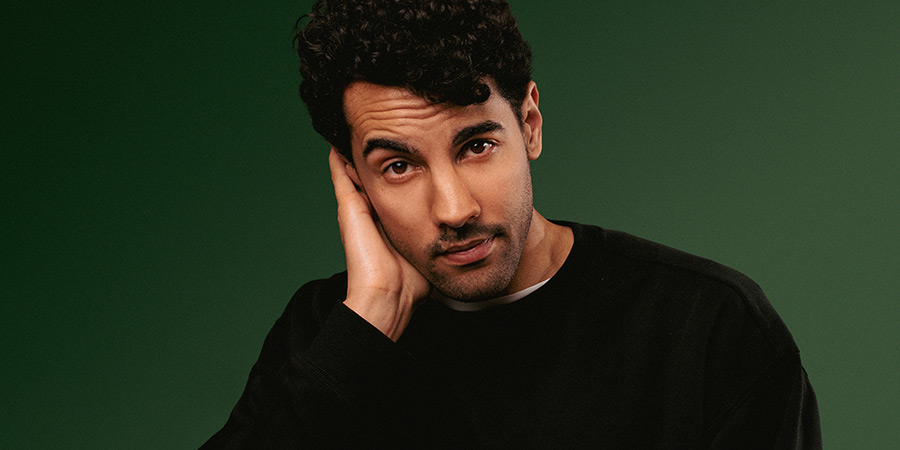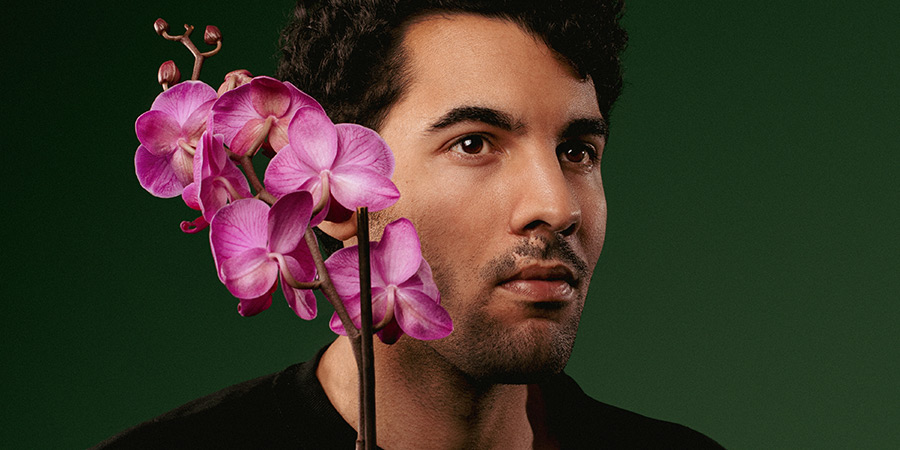My Comedy Career: Nathan D'Arcy Roberts

As he prepares to bring his show about modern masculinity, racial identity and "bizarre song choices in McDonald's" to the Edinburgh Festival, we caught up with Nathan D'Arcy Roberts to find out more about how he interacts with the comedy industry.
Tell us what you do in your job.
I'm a freelance writer, comedian, and script editor. Most recently, I've worked on the newest series of Horrible Histories, the Horrible Histories podcast, CBBC's Lagging, and Radio 4's DM Are Open.
I'm a bit of a factotum. I've worked across many different genres and many different formats. The biggest misconception re: writing is that you'll end up working in the one area that you've always wanted to. "I want to write serious drama, and that's what I'll waltz right into". You need to be flexible.
I never thought I'd write for kids, but it's ended up being one of the most pivotal steps in my journey. When you write for young audiences you need to focus your storytelling and make sure it's logical and accessible. This sounds obvious, but you'll be amazed at how many writers fail to meet this low bar.
How did you first get involved in the comedy industry?
I came to comedy from a film background. I always wanted to be a screenwriter and thought my future was in serious, thoughtful, prestige dramas. Tired of no one reading my work and my work not being all that good, I started performing at open mics. I loved the immediacy of the feedback. There's no convincing yourself you're an undiscovered genius when your crap gags about Tinder are received with crippling silence.
I focused on stand-up comedy and it soon became clear to me that I should be focusing exclusively on comedy in all areas of my work. I stopped writing serious-minded screenplays and focused on writing comedy scripts. This was my wheelhouse. The more I performed on stage the more interested people became in reading my work. People like people who do things. The better I got at stand-up the better my scripts were. And vice-versa.
A few years into performing, I was lucky enough to receive the BBC's Felix Dexter Bursary. This provided me with the opportunity to start writing professionally on shows like The News Quiz, The Now Show and Newsjack and pave the way for the rest of my career.

What key skills do you need to be able to do your job well?
Persistence and good taste.
What has been your biggest career achievement to date?
Performing at the Soho Theatre and producing a short film with BFI Funding. Both helped me learn what elements of my voice resonate with audiences.
And what has been the biggest challenge/disappointment?
The biggest challenges have been projects that looked like they were about to go ahead but fizzled out. You'll always get knockbacks in this industry. You just have to keep going. If a project doesn't pan out then it clearly wasn't the right time. Start something else. If that goes ahead, great. If not, then start something else.
Talk us through a typical day.
I don't have a typical day. It depends on where I am in the process. Right now I'm working on my Edinburgh Fringe show and a pilot script. I start the week with 2 to-do lists. My to-do lists for each day (which is optimistic) and a second to-do list with the things that I have to get done by the end of that week.
Last week I had to work on my show structure. So I'll listen to recordings and make a list of actionable notes that I can tick off. Then for my pilot, I'll read it and give myself actionable script notes that I can tick off over the course of the week.
This makes me seem far more regimented than I actually am. If I'm stuck with procrastination then I might stare at my to-do list for hours, waste the day, then find a sudden burst of hyper-focus around 9pm and work through to 3am. I have no advice for a healthy work/life balance. If anyone out there has any pointers feel free to hit me up.

Tell us a trick/secret/resource that you use to make your job quicker/easier.
I wish!
How are you paid?
I work freelance so I live job to job. Right now I'm working regularly enough for this not to be a problem. I don't think I'll go into figures though. This feels like a trap. Isn't this how they got Al Capone?
What tips would you give for anyone looking to work in your area of the industry?
If you want to write scripts, then you need to read scripts. Great scripts to learn from the masters, and terrible scripts to learn from others' mistakes. If you want to perform comedy then you need to avoid judging yourself against the specials you've grown up watching. Just keep working on your material and you'll find your path.
This article is provided for free as part of BCG Pro.
Subscribe now for exclusive features, insight, learning materials, opportunities and other tools for the British comedy industry.


